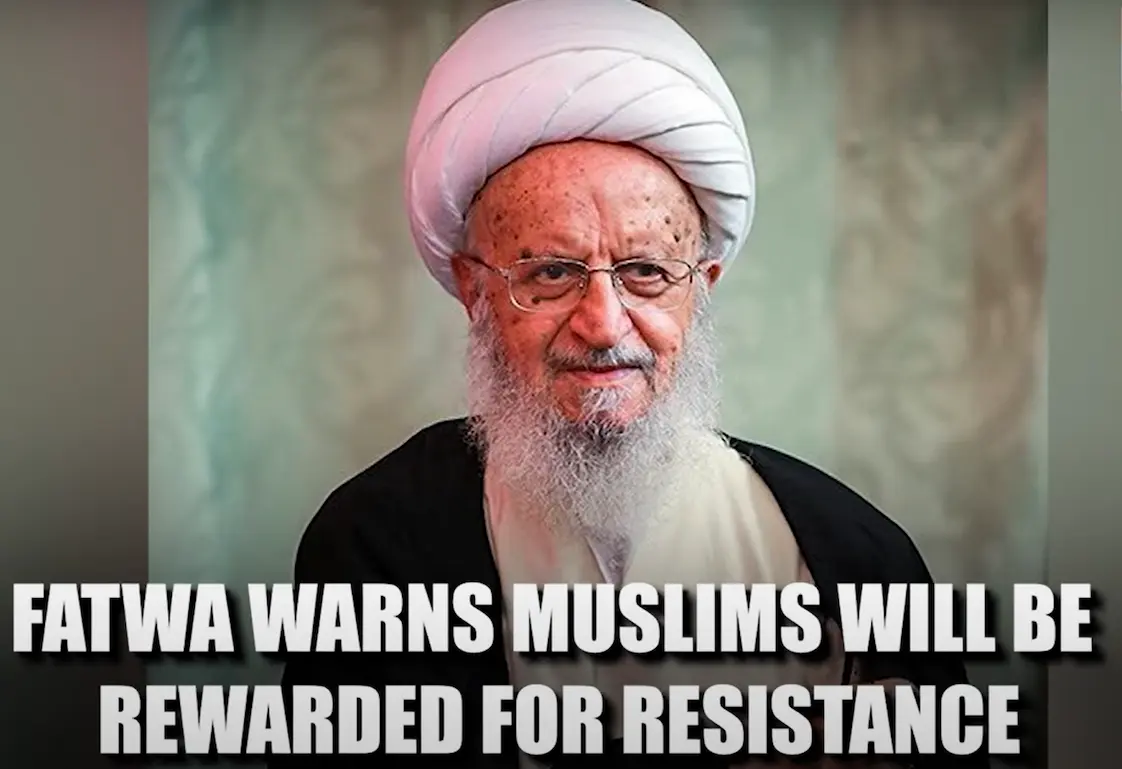
Iran’s top Shia cleric has issued a fatwa branding Donald Trump and Benjamin Netanyahu as “enemies of God,”
A Fatwa with Firepower: Iran’s Religious Decree Targets Trump and Netanyahu
In a move that has sent shockwaves through diplomatic circles, Grand Ayatollah Naser Makarem Shirazi, one of Iran’s most senior Shia clerics has issued a fatwa labeling former U.S. President Donald Trump and Israeli Prime Minister Benjamin Netanyahu as “enemies of God.” The decree, delivered in the wake of a brutal 12-day conflict between Iran and Israel, calls for Muslim nations to unite in opposition to the two leaders.
Table of Contents
The fatwa, a formal religious ruling under Islamic law, goes beyond symbolic condemnation. It invokes the term mohareb, a designation in Iranian jurisprudence for those who “wage war against God.” Under Iranian law, this label carries the gravest of punishments, including execution, crucifixion, or exile.
Makarem’s decree states that “any cooperation or support for that enemy by Muslims or Islamic states is haram [forbidden],” and urges believers to make these leaders “regret their words and mistakes.” The fatwa also promises divine reward for Muslims who suffer hardship in this campaign, framing it as a sacred duty.
This is not the first time Iran has used a fatwa as a geopolitical tool. The most infamous example remains the 1989 decree against author Salman Rushdie, which led to decades of threats and a near-fatal stabbing in 2023. But this latest fatwa, targeting two of the most polarizing figures in global politics, may have even broader implications.
From War to Words: The 12-Day Conflict That Sparked the Fatwa
The fatwa comes on the heels of a devastating military confrontation that began on June 13, 2025. Israeli airstrikes targeted Iranian nuclear scientists and military commanders, prompting Tehran to retaliate with ballistic missile attacks on Israeli cities. The conflict escalated when the United States joined Israeli forces in striking three of Iran’s nuclear facilities.
In response, Iran launched a barrage of missiles at a U.S. military base in Qatar, marking one of the most direct confrontations between the two nations in recent years. The violence left dozens dead and raised fears of a broader regional war.
While the U.S. and Israel claimed the strikes were necessary to prevent Iran from developing nuclear weapons, Tehran has consistently denied any such ambitions. The UN’s nuclear watchdog later reported that Iran’s uranium enrichment capabilities remained largely intact, contradicting U.S. claims of having set back Iran’s program by “decades”.
Against this backdrop of bloodshed and brinkmanship, Makarem’s fatwa appears to be both a religious pronouncement and a political rallying cry. It seeks to galvanize Muslim unity at a time when sectarian and geopolitical divisions run deep.
Global Reverberations: Unity or Unrest?
The fatwa has sparked a flurry of reactions across the globe. While Iran’s allies have largely remained silent, Western governments are reportedly assessing the decree’s implications for regional security and diplomatic engagement.
Experts warn that such a fatwa, especially one issued by a Marja, a senior authority in Twelver Shia Islam carries significant weight among Shia communities worldwide. Though not legally binding outside Iran, it can influence public sentiment, fuel radicalization, and complicate peace efforts in the Middle East.
The decree also places Muslim-majority nations in a delicate position. Supporting the fatwa could strain ties with the U.S. and Israel, while rejecting it may provoke backlash from hardline factions. The call for Muslim unity, while aspirational, risks deepening existing divides between Sunni and Shia blocs.
In Israel and the U.S., officials have yet to issue formal responses. However, analysts suggest that the fatwa could be used to justify future acts of aggression or to rally support for Iran’s regional ambitions. It may also embolden proxy groups aligned with Tehran, such as Hezbollah or the Houthis, to escalate their activities.
Conclusion:
Iran’s fatwa against Donald Trump and Benjamin Netanyahu is more than a religious edict, it’s a geopolitical thunderclap. Issued in the aftermath of a deadly conflict, it fuses faith with fury, casting two world leaders as divine adversaries and calling for a united Islamic front. Whether this decree leads to greater unity or deeper unrest remains to be seen. But one thing is certain: the Middle East’s already volatile landscape has just become even more combustible.
Stay updated with the latest news on Rapido Updates. Keep yourself updated with The World, India News, Entertainment, Market, Automobile, Gadgets, Sports, and many more